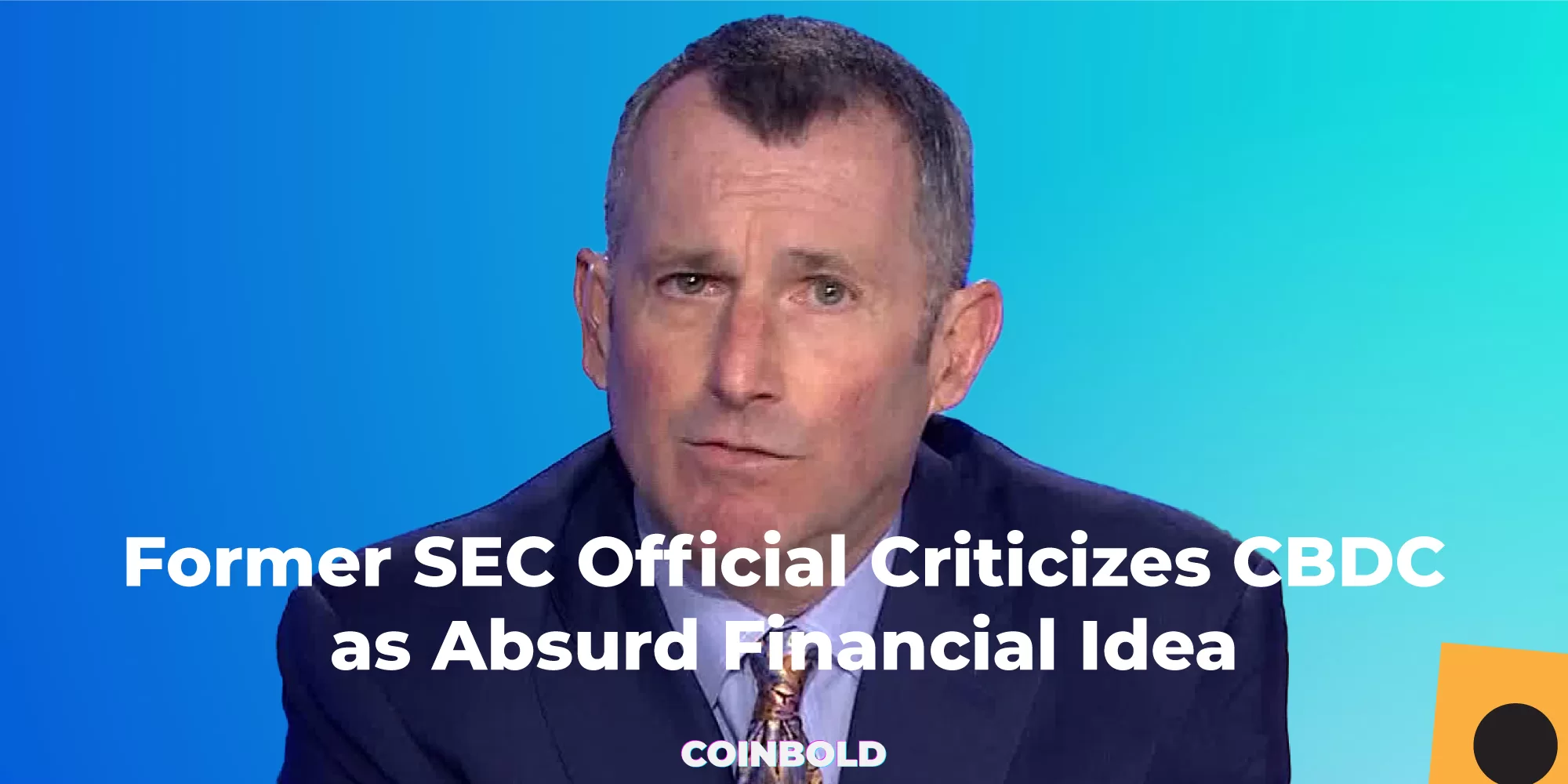John Reed Stark, former Chief of the SEC Office of Internet Enforcement, has recently criticized the idea of creating a Central Bank Digital Currency (CBDC), labeling it as the “most absurd financial idea in the history of monetary policy.” His comments have sparked debate and discussion within the financial community. In this article, we will explore his viewpoints and the arguments presented.
The creation of a CBDC is perhaps the most absurd financial idea in the history of monetary policy.
First off, just like crypto and stablecoins, you must begin by answering the question of what problem does a CBDC actually solve. Why do we need a CBDC? There is no answer to that… pic.twitter.com/BNkM1gehZ9
— John Reed Stark (@JohnReedStark) July 4, 2023
The Question of Problem Solving
Stark argues that the fundamental question that needs to be answered before considering a CBDC is what problem it actually solves. He believes that there is no clear answer to this question, indicating a lack of necessity for a CBDC.
Existing Regulated Digital Currencies
Stark points out that there are already numerous digital currencies in existence that function effectively and enjoy trust because they are regulated, audited, and overseen by democratic government authorities. These digital currencies are operated by regulated financial institutions registered with the FDIC or SIPC, providing an additional layer of security.
Concerns and Policy Challenges of CBDCs
The former SEC official expresses concerns about the potential dangers and policy challenges associated with CBDCs. He highlights their potential impact on the market structure of the financial sector, the accessibility and affordability of credit, the safety and stability of the financial system, and the effectiveness of monetary policy.
Alignment with Hilary Allen’s Views
Stark aligns himself with Hilary Allen, who testified before the U.S. Senate Committee on Banking, Housing, and Urban Affairs about Stablecoins and CBDCs. Both share the belief that CBDCs introduce unnecessary risks to global financial stability and open floodgates to privacy concerns, conflicts, and cybersecurity threats.
Contrasting Banks and Crypto Firms
Stark argues against the comparison between banks and crypto firms, stating that banks are heavily regulated and depositors generally have a broad range of proven and time-tested protections. On the other hand, he points out that crypto firms lack insurance, regulatory oversight, consumer safeguards, examinations, audits, licensure, mandated cybersecurity standards, fiduciaries, customer asset segregation, and rules against insider trading or market manipulation.
Reactions and Criticisms
The controversial opinion of the former SEC Chief has attracted comments and criticisms from the entire community and a number of well-known names. Stark even found himself debating with billionaire Mark Cuban, where the entrepreneur highlighted the need for stringent regulations like those in Japan and their potential impact on investors.
Conclusion
John Reed Stark’s criticism of CBDCs as the “most absurd financial idea in the history of monetary policy” has sparked intense debate. While he questions the necessity of CBDCs and highlights concerns regarding their potential impact, it is important to consider multiple perspectives and continue the dialogue around the future of digital currencies.
FAQs
1. What is John Reed Stark’s position on CBDCs? John Reed Stark, a former Chief of the SEC Office of Internet Enforcement, criticizes the idea of creating a CBDC, labeling it as the “most absurd financial idea in the history of monetary policy.” He questions the problem-solving aspect of CBDCs and highlights concerns about their potential impact and policy challenges.
2. What does Stark say about existing regulated digital currencies? Stark points out that there are already regulated digital currencies in existence, operated by financial institutions registered with regulatory bodies like the FDIC or SIPC. These regulated digital currencies function effectively and enjoy trust due to the oversight and regulations imposed on them.
3. What are the concerns associated with CBDCs according to Stark? Stark expresses concerns about the potential impact of CBDCs on the market structure of the financial sector, the accessibility and affordability of credit, the safety and stability of the financial system, and the effectiveness of monetary policy.
4. Who is Hilary Allen, and how does Stark align with her views? Hilary Allen testified before the U.S. Senate Committee on Banking, Housing, and Urban Affairs about Stablecoins and CBDCs. Stark aligns himself with her views, sharing the belief that CBDCs introduce unnecessary risks to global financial stability and raise privacy concerns, conflicts, and cybersecurity threats.
5. How does Stark contrast banks and crypto firms? Stark argues that banks are heavily regulated and provide a broad range of protections to depositors, whereas crypto firms lack insurance, regulatory oversight, consumer safeguards, examinations, audits, and other standards and rules that ensure the protection of customer assets and prevent insider trading or market manipulation.
Note: The views expressed by John Reed Stark in this article are his own and may not represent the opinions of all individuals in the financial community. The purpose of this article is to provide an overview of his viewpoint and the ensuing discussions.


